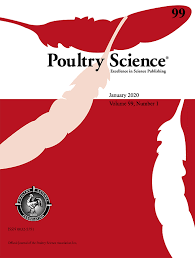Document type : scientific journal published in Veterinary Sciences
Authors: Kate Fenner, Michelle Hyde, Angela Crean, Paul McGreevy
Preview : Owner-reported behavioural observations form an essential part of the veterinarians' diagnosis and treatment plan. The way we train and manage horses affects their behaviour and, in turn, their health and welfare. Current horse training and management practices are largely driven by traditional techniques and longstanding methodologies. These approaches generally lack an evidence base for evaluation purposes. The absence of evidence and evaluation contributes to the persistent use of risky practices and this, in turn, increases risk of potential harms for both horse and rider, and fuels questioning of the equine industry's current social license to operate. Objective evidence is required to make training and management decisions based on demonstrable best practice. Large-scale experimental or intervention studies using horses are generally not practical because of the associated costs and logistics of gaining ethical approval. Small studies generally lack statistical power and are subject to the effects of many forms of bias that demand caution in the interpretation of any observed effects. An alternative to collecting large amounts of empirical data is the use of owner-reported observations via online survey. Horse owners are ideally placed to report on the domestic equine triad of training, management, and behaviour. The current article highlights three sources of potential bias in a systematic review of literature on large-scale online studies of horse owners' observational reports that met the following selection criteria: English-language, published, peer-reviewed articles reporting on studies with over 1000 respondents and open access to the survey instrument. The online surveys were evaluated for three common forms of bias: recall, confirmation, and sampling bias. This review reveals that online surveys are useful for gathering data on the triad of horse training, management, and behaviour. However, current use of online surveys to collect data on equitation science (including horse training, management, and behaviour) could be improved by using a standardised and validated tool. Such a tool would facilitate comparisons among equine and equitation science studies, thus advancing our understanding of the impacts of training and management on horse behaviour. The authors of the current review suggest the use of a standardised behavioural and management assessment tool for horses. Such a tool would help define what constitutes normal behaviour within geographically disparate populations of horses, leading to improvements in rider safety and horse welfare.






